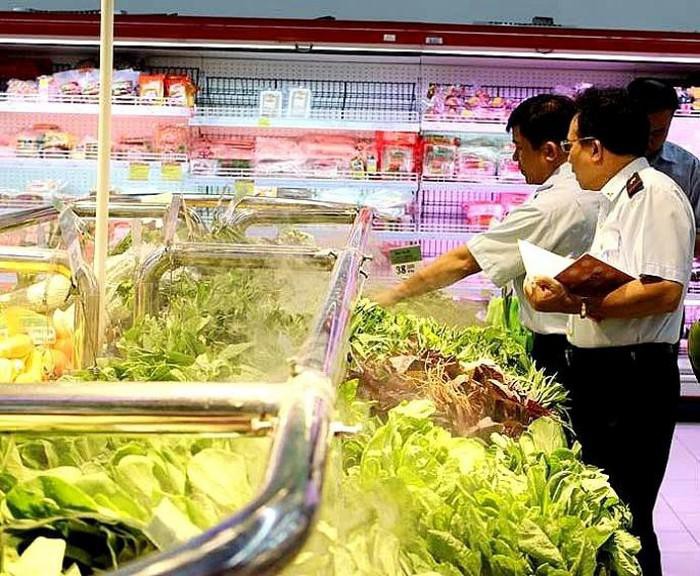Ha Noi enhances management of food hygiene and safety in agriculture
VGP – Since the beginning of the year, Ha Noi’s agricultural sector has stepped up the management of food hygiene and safety, with attention paid to strengthening the inspection, evaluation, classification, construction and development of safe farm produce chains, aiming to control the quality of agricultural products provided for the market.
 |
| Illustration photo |
Inspecting and handling violations
According to the Ha Noi Sub-department of Agro-Forestry-Fisheries Quality Assurance, there are currently 17,417 establishments trading in agricultural supplies and agro-forestry and fishery products across the city. So far this year, the sub-department has appraised and classified 51 establishments, including 34 with B rating (66.7%), 13 with C rating (25.5%) for failing to satisfy food hygiene and safety requirement, and four with no rating (7.8%). At the same time, it granted 30 certificates of food safety to B-rated establishments. In addition to the inspection, evaluation and classification work, the municipal agricultural sector has also accelerated the handling of violations according to regulations.
Focusing on supervisory work right from grassroots level
In order to improve the efficiency of food hygiene and safety management, in the near future, the Ha Noi Department of Agriculture and Rural Development will continue promoting communication on the mass media and training people and consumers on food management regulations and how to choose safe products with clear origin.
Ta Van Tuong, deputy director of the department, said that the department has urged units to strengthen irregular inspections and the post-inspection supervision of the implementation of laws on food quality and safety in agriculture. Moreover, the department has requested the continuous review and listing of trading establishments of agro-forestry-fishery products across the city to organize inspection, evaluation, classification and issuance of food safety certificates in line with regulations, as well as to publicize the inspection results on the mass media so that people could know and monitor.
In addition, localities have been asked to strengthen re-inspection of C-rated establishments that do not ensure food hygiene and safety conditions, and strictly punish those with little progress in the issue. The department has also told localities to intensify traceability management and apply the QR codes to ensure information transparency and create a healthy competition in the market.
By Vien Nhu

